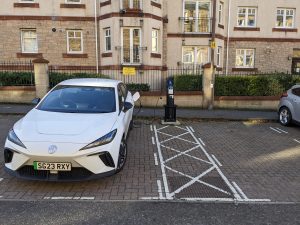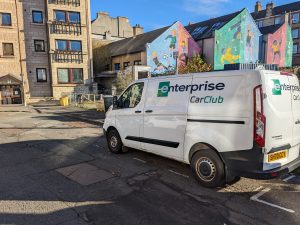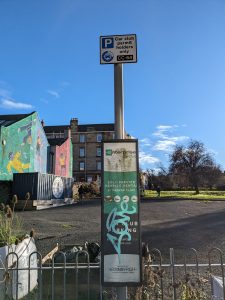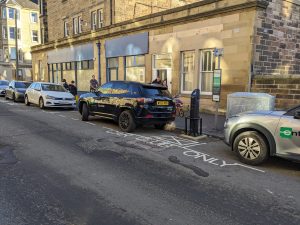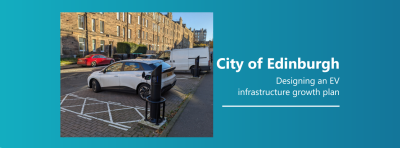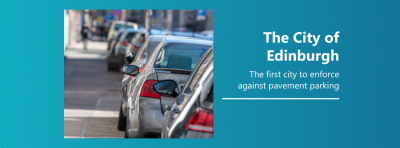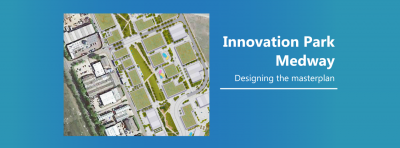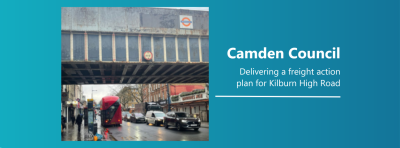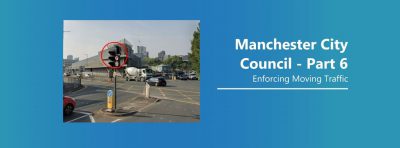Background
Edinburgh Council commissioned us to review their current car club contract and provision and to recommend some service improvements. Our electric vehicles (EV) team was also in charge of identifying incentives for car club operators, to encourage the usage of EV in the city. Our proposal was based on current best practices and key stakeholders’ engagement.
Process
Project Centre developed the work scope, which required:
- Reviewing current car club policy Identifying national, regional, and local policy context
- Studying car clubs and operating models
- Benchmarking and reviewing CEC’s current car club contract
- Consulting internal stakeholders and car club’s member and non-member focus groups
- Engaging current operators, competitors, and the national organisation for shared transport (Como UK)
- Delivering a final report, which outlines key findings and recommendations to ensure car club services in the city meet policy objectives
We also undertook desk-based research to deliver the car club policy’s report, outlining the UK car club development’s background and an overview of the current UK car club market. This included the key commercial operators in the sector. Our team also utilised their Geographical Information Systems expertise to produce maps that help illustrate the pathfinder report. The document provided a picture of the current car club provision, including data on:
- Indices of multiple deprivation
- Current car club users and location of car club bays, including both five and ten minute- walking areas to each one
Our engagement strategy
Our engagement team worked closely with the EV team, undertaking market research with four major commercial operators in the UK: Co-Wheels, Enterprise Car Club, Hiyacar and Zipcar. This process enabled our team to identify the EV expansion potential and offered useful insights into likely bidders for any future procurement process.
- Cars’ ownership and use as well as awareness and views on car clubs
- How people can develop more positive attitudes towards shared mobility through car clubs CEC’s car club membership options
- How car club provision may enable more people to choose shared mobility for longer journeys
- Different operators and what could encourage greater car club uptake in Edinburgh
Outcome
With the collected data, Project Centre delivered a report including ten recommendations for the CEC’s car club provision’s next steps:
- The dedicated EV bays should remain the default car club infrastructure, but located permit bays could be used at new locations where parking pressure is low.
- CEC should support multiple car club operators.
- CEC should use a permit scheme to assign on-street bays to multiple operators.
- CEC should invite operators to indicate how many bays they wish to operate and new areas of the city they’d like to establish themselves in.
- CEC should encourage vehicles to be in areas that are not currently served by car clubs.
- CEC should provide behaviour change measures to support the uptake of car clubs.
- CEC should include the provision of dedicated fleet vehicles as a separate lot within the car club contract and include a key performance indicator for effective monitoring of their utilisation.
- CEC should consider redistributing the dedicated fleet vehicles’ location so that not all vehicles are located at the Council’s main offices.
- CEC should keep monitoring customer satisfaction, complaints, emissions, and utilisation of EV.
- CEC should require operators to provide data for improving customer experience.
Testimonials
Project Centre helped by undertaking a best-practice review of car club operations in the city, by assessing the current operating model against other leading car club cities in the UK.
This helpful and informative review and analysis exercise provided a report featuring spatial analysis of areas in the city to target with car club provision, and recommendations relating to operating models as informed by workshops, focus groups and interviews with third parties including users and operators. Project Centre’s support in coordinating all aspects of this commission was therefore greatly appreciated by the Council.
The City of Edinburgh Council


